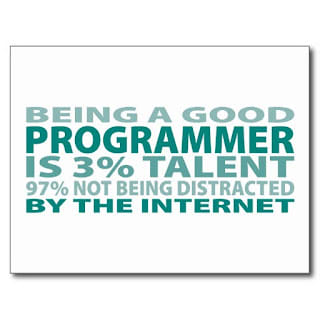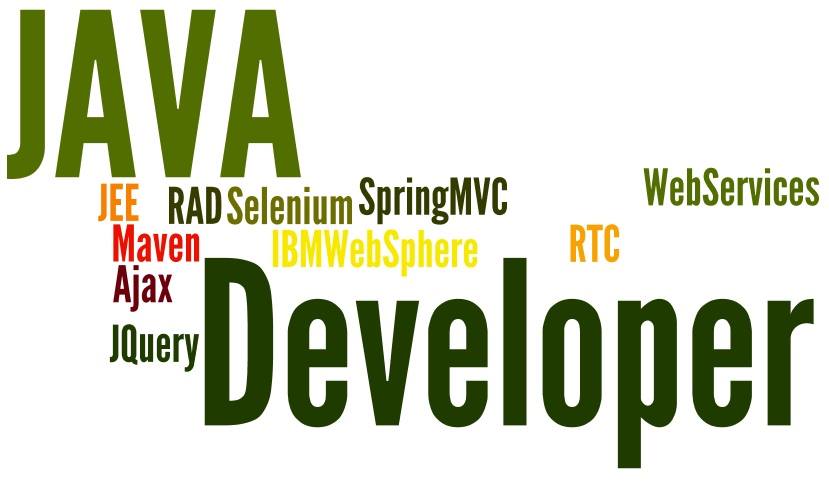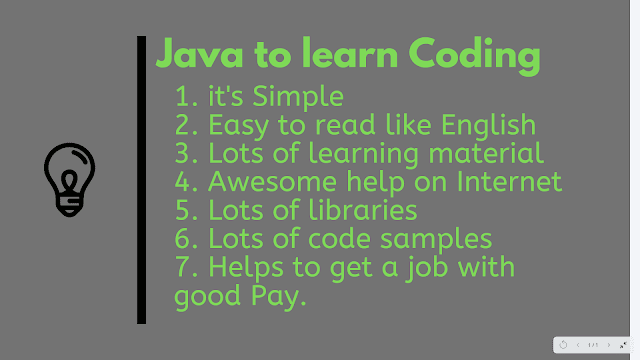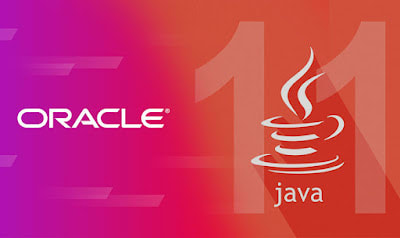Disclosure: This post includes affiliate links; I may receive compensation if you purchase products or services from the different links provided in this article.
I often receive questions like which is a first programming language to learn?, Is Java a good programming language to start with?, how good Java is as a first programming language, which is the best programming language for beginners, or shall I start with Java or Python?.
Well, the answer to all these questions is, Java is one of the most popular programming languages, and there are a lot of reasons to learn Java, starting with Job opportunities to leveraging community support.
But, in the context of beginning programming or choosing Java as the first language, my most significant reason is that it's simpler to learn.
People may argue that Python is even simpler and doesn't even require to compile but I personally found Java much easier to read and understand.
The last generation of programmers started learning to program using languages like BASIC and then grew up learning C and C++ with Java as their second or third programming language.
One reason for this could be that C and C++ were more prevalent in those days than Java, the other most curriculum was designed to teach C and C++, and there was no Python those days, at least not in our college.
This is true, *often we don't make a choice, and we learn as part of the programming curriculum at school and colleges. In my time, C was the first programming language in our engineering college, and then we learned C++, VB, VC++, and finally Java.
Now I am saying Java more straightforward and easy to learn, but I still remember saying it was more complicated than C++ because I had to type System.out.println() instead of simpler cout to print something on the screen, but that was just a momentary feeling.
When I started writing and maintaining bigger programs, I found Java much more readable, and you can think what code is doing. Debugging and finding a problem was also much more comfortable in Java than compared to C++ or C.
By the way, I learn professional programming, or you say real coding only on my first job, and that was when I seriously started learning Java.
Is Java a Good Programming Langauge to Start With?
Here are my couple of reasons, why I think Java is the right programming language to start learning to code:
1) Java is simpler, the syntax is much more readable than C, C++ or any other language.
2) Java is good to learn Object-Oriented programming, but not so good for procedural one, prefer C there. The OOP or Object Oriented programming is a useful skill because it handles the complexity of a real-world application quite well. It's easier to think in terms of class and objects.
3) Java has a rich API, and you can do a lot more with Java including graphics, sound and most likely writing small games like Tic Tac Toe, Tetris, etc.
Not that you cannot do that with other languages, you often need to download and install different modules and library, which is a tough job for a starter. When you install Java, most of these feature comes as part of the installation only.
4) Java has strong community support, no matter what kind of questions, doubt, or issue you have, Google can find answers for you. If not Google, then StackOverflow, Java forums and a lot of other communities are there to help you out.
This is really the single biggest reason I suggest beginners learn to code using Java because when you are starting to learn to program you will face many different kinds of issues to understand for both programming fundamentals and Java.
Because there are millions of Java developers around and a big community is there to support, most likely you will find answers quickly without getting frustrated and disappointed.
5) Java is a strongly typed language, which catches many newbie mistakes. Also valid, to a lesser extent, for static typing. This is another reason I suggest beginners learn Java first then Python because Python is dynamic typing language, you don't need to define types which make learning confusing a bit.
6) Java comes with in-built Garbage collection, which is a big plus for a complete beginner. Dealing with memory management is a big thing at the start of learning programming.
These are some of the reasons why I think beginners should learn Java first than any other language. I may be biased because I am a Java programmer, but I also know Python, and I have also done professional programming in C and C++. From that experience, I can say that Java is undoubtedly one of the best programming languages for beginners.
If you have already made up your mind to learn Java, then you can join The Complete Java Masterclass to start your journey into the beautiful world of Java. This is one of the best course to learn Java for beginners. It's comprehensive but at the same time hands-on and suitable for beginners.
Is Java Enough for a Successful Programming Career?
Now the question is the difference, It's NOT. As a programmer, you must know a lot of things, like data structures, algorithms, memory management, object-oriented programming, scripting, etc. and different language teaches you a different thing.
Once you are comfortable with Java, you can move to other useful programming languages like Scala, JavaScript or also go towards scripting langue's, like Python, which doesn't need to be compiled.
To be successful in a programming career, you need to keep learning and evolving, that's the biggest challenge of this field. If you happen to love programming and learn new technologies and languages, then this is the right field for you.
Another important thing for a successful programmer is to develop debugging skill, which is a reasoning based skill. If you want to become a better Java developer, you can also see my recent post about 10 tips to become a better Java developer.

If you are good with reasoning and can make a conclusion based upon limited available information, then it will be easy for you to troubleshoot issues and find problems.
Having a good knowledge of IDE like Eclipse, Netbeans, or IntelliJIDEA will also help you with your coding and debugging journey, Java is blessed with a really excellent tool.
That's all on this folks. In my opinion, Java is definitely an excellent language to start programming with, because it's simpler than many others and focuses truly on programming rather than managing systems, like memory management.
If you are convinced to start learning to code with Java than pick up a copy of Head First Java or join The Complete Java Masterclass and start your journey of programming with one of the best programming language, Java.
In short, You can definitely choose Java as your first programming language and once you are comfortable, try to learn a couple of more, e.g. JavaScript or Python.
More Resources
Java Tutorial for Complete Beginners (FREE)
Data Structures and Algorithms: Deep Dive Using Java
Java Fundamentals: The Java Language
Java Basics for Beginners (FREE Course)
Practice Java by Building Projects (FREE Course)
10 Free Java Courses for Beginners and Intermediate developers
10 Things Java Developer should learn
21 Websites to Learn Coding for FREE
Thanks for reading this article so far. If you like this article, then please share it with your friends and colleagues. If you have any questions or feedback, then please drop a note.
P. S. - If you like books, you can also check out this list of Must-Read Java Programming books to learn Java in depth.






Top comments (42)
Java is easy for beginners?
Here the "Hello World" program in Java:
You have to explain a lot of complex topics.
And now in Python:
But nobody will stay with single command program.
There is not a problem if you have to explain what is the class and the object. You don't have to explain it on a first day.
Problem with Python is that that language IS NOT intuitive and you will have much worse dilema later.
After years of C# and Java and Pascal/Delphi and PHP and ... we are teaching young people Kotlin and it has never been better language for doing that.
I hope that one day Kotlin will be also more popular in AI in comparison with Python. I have tried Python but I will never be able to use to it.
There's php code:
echo('hello world'); this is just the reason for learning Java or other "more strict" languages before Dynamic ones, if you give a kid a php or python or... Similar languages it will be a mess due to non understanding of what a class is etc (and tell me how to work with Python without packages)
A similar answer (for the same reasons) can be given for Scala.
And when you learned Scala, you won't even need to downgrade to Java 😁
I think c/c++ is better for teaching underlying programming concepts. Particularly in regards to to memory allocation and pointers. However, if one wants to learn programming for practical "I want to get a job" reasons, then Java is a solid pick I suppose.
It's valuable to eventually learn concepts like pointers and memory management.
However, they're not critical to learning programming (and increasingly becoming less relevant as compiler and languages improve automatic/checked management of memory and resources), and distract from far more important concepts like abstraction, schemas, patterns, etc. (a lot of other misfeatures in C and C++ are also bad distractions).
If learning programming then I agree. If learning computer science, then the lower level stuff is usually better for learning concepts. It all depends on your goals.
If anything, the opposite is true. Computer science does not care about pointers, nor do they care about "low level" details, since those are implementation details that are dependent on hardware.
Pointers don't show up in the formulation of computation in many models (lambda calculus models, Turing machine models, stack machine models...).
They are not particularly important conceptually (in fact, the unsafety of general pointers makes it nearly impossible to talk meaningfully about any nearly computing concepts; you need to severely restrict the discussion to pointers used safely in particular patterns, which is very hard to actually do accurately). They are merely the way that hardware generally implements "constant time" array access.
Even then, that's not true -- there is no such thing as constant time access to memory!
The fundamental concept is just maps, which is entirely obscured by the messiness of pointers.
Hi Alan,
Exactly, do you advice books or sites or blogs to learn the lower level stuff to better learning concepts?
Thanks
what a great comment by Mr Fenner
hello @Alan, you have a point, Definitely.
I totally agree with you
I think Python is hands down the best choice for beginners, and I don't even like it that much.
If you prefer a language with static typing I'd argue C# is marginally beter than Java.
I'd say start with either C# or Java. They both allow you to work with pass by value and pass by reference. They enforce static typing which forces young coders to think about how they are developing. And both have huge enterprise and enthusiast communities behind them.
Marginally?
Where Java tried and failed to be a "better C++," C# succeeded at being a better Java
Python is multi-paradigm and Java is imperative OOP only. The biggest problem that at the moment pretty much every school teaches you how to write imperative code leaving the possibility to learn declarative functional programming to you with no help. I agree that for low level programming languages imperative code is reasonable and it is still good to know how memory gets allocated and Java doesn't give it. Picking up such language as python gives you freedom in choosing, which paradigm you want to stick with, or at least improving skills right from the beginning. Many developers don't want to learn FP nowadays because they spent years on learning only imperative programming and used it on their work so even mentioning FP makes them angry and dissatisfied.
So I think that C/C++ is still a must and python is a good choice for the next language.
How often do people actually write in functional style in Python though? OOP/imperative is still the first thing most Python programmers will learn.
Because imperative code is much closer to how human brain works. Line by line. FP is a bit difficult from the beginning because it forces to think in a different way. That's why it is always easier to start with imperative coding. However, if the tool also provides the possibility to write declarative code there is a chance developers try it. Java cuts this possibility making new developers OOP oriented only.
You've got a point. I totally agree that more people should learn FP. But learning declarative in an imperative-first language means that if you can't solve it in declarative there's a big chance you fall back into your comfort zone. If you are looking to learn declarative for educational purposes you're better off choosing an functional-first language. Programmers are expected to learn multiple languages eventually.
I'm not saying to not learn Python first. My point is that these so-called "multi-paradigm" languages are still very much focused on imperative (most of them at least), and choosing Python for the sake of it isn't a good reason.
More often than even they realize.
The moment you write your first generator expression, you've already discovered the power of a functional style.
Yes, they start out with OOP (in a rather Self-like style), but much of the language does, despite Guido van Rossom's poor understanding of it, in fact support strong functional style very well, and Python programmers learn it very early on.
Java was my fourth or fifth language to learn in my life and I would not dare to say it is good for beginners. Yes, I started with Basic 30+ years ago.
I found out that huge impact in this process has an IDE.
Until I tried IntelliJ IDEA I was not able to work with Java either.
How is Java syntax easier to read than JS, Ruby or Python?
Almost every language is easier to read than (not very curated) JS 😬; Perl being one of the exceptions, of course.
On the other hand, it's a bit harder writing unreadable code in Python, Ruby, or even Java.
I agree with article because Java is simple, that's why is a good language for beginners. And it is equal to C# in this case.
But Java has one big problem - after you try Kotlin, you never want to go back to Java or C# or C++ or Python...
"Java is... Simple... Reads like English"
Lol.
Either it's a troll statement or someone is being ignorant to the existence of languages like Py/Ruby.
I think it comes down to what an individual wants to accomplish.
That will dictate what language they should start with.Do they want to do game programming or full stack web design?.There can never be a best language to learn coding.
Hey Peter B, I think you have a point. If you want to quickly develop a website then definitely its lot easier in Python and Ruby than Java, but at the same time for getting a job and working in a large project in a big company, Java is always preferred over Python/Ruby.
I've found that my peers who learned programming through java think of code more in terms of blocks of text, while those who learned via python/lispy pathways think of code more in terms of values and control flow. I think the former is rather damaging.
As someone who started with Java I most definitely do not think in "blocks of code" when I develop I see the flow and system as a whole. It sounds like your Java friends need more experience.
Some comments may only be visible to logged-in visitors. Sign in to view all comments.